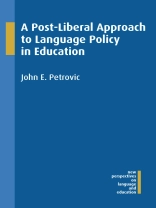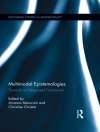This provocative defense of language diversity works through the strengths and weaknesses of liberal political theory to inform language policy. The book presents the argument that policy must occupy the space between ‘linguistics of community’ and ‘linguistics of contact’ in a way that balances individual autonomy and group recognition while not reifying ‘language’. Drawing on the importance of the language/identity link, the author distinguishes between language negative liberalism and language positive liberalism, arguing against the former. This distinction orients consideration of increasingly specific language policy issues, such as official languages, language rights, bilingual education, and uses of language varieties within classrooms.
สารบัญ
1. Language Policy, Identity, and Liberalism: Some Foundational Connections
2. Formalist Liberalism and Language Policy
3. Saving Liberalism: Communities, Language, and Schooling
4. The Promise and Problem in Linguistic Human Rights
5. Post Linguistic Human Rights?
6. Post-Liberal Language in Education Policy
7. A Post-Liberal Approach: Broadening Language and Narrowing Policy
เกี่ยวกับผู้แต่ง
John E. Petrovic is a Professor of Educational Leadership and Foundations of Education at The University of Alabama, USA. His research interests include the philosophy of education, education policy, language policy, and issues of diversity in education. He is the series editor of Studies in the Philosophy of Education, by Information Age Publishing.












